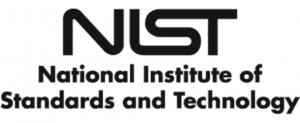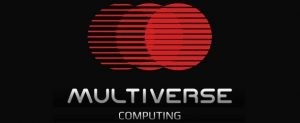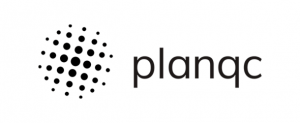Quantum News Briefs November 14: Quantum Computing, Inc. Secures First Order For TFLN Photonic Chip Foundry • NIST Releases Initial Public Draft of “Transition to Post-Quantum Cryptography Standards” • Multiverse Computing Launches Singularity Machine Learning Classification Function in IBM’s Qiskit Functions Catalog • planqc to Build 1,000-Qubit Neutral-Atom Quantum Computer in €20 Million Government-Funded Project for Leibniz Supercomputing Centre • A Rudimentary Quantum Network Link Between Dutch Cities

Quantum Computing, Inc. Secures First Order For TFLN Photonic Chip Foundry
 Quantum Computing Inc. (Nasdaq: QUBT), an innovative, integrated photonics and quantum optics technology company, announced that the Company has secured its first order for its thin film lithium niobate (TFLN) photonic chip foundry as per November 13 news release.
Quantum Computing Inc. (Nasdaq: QUBT), an innovative, integrated photonics and quantum optics technology company, announced that the Company has secured its first order for its thin film lithium niobate (TFLN) photonic chip foundry as per November 13 news release.
The order, placed by a prominent research and technology institute based in Asia, underscores the growing global demand for QCi’s advanced fabrication technology of TFLN and its ability to produce high-performance photonic integrated circuits (PICs) and nanophotonic devices. This milestone highlights QCi’s commitment to accelerating the widespread adoption of TFLN and positioning it as a vital component of the future telecom, datacom, and quantum landscape.
The order will leverage QCi’s proprietary capabilities in etching, processing, and wafer-scale characterization of TFLN. QCi’s key technological advantage lies in its TFLN processing expertise, which is crucial for producing state-of-the-art optical devices and photonic engines that are in significant demand across various high-growth markets, in particular, the coherent communication, telecommunication, and data communication market segments.
In addition to its advanced manufacturing capabilities, QCi will offer in-house photonic chip design services as part of the order, which will include two separate fabrication runs tailored to meet the customer’s needs. The first photonic chips for this order are expected to be delivered in December 2024, with the full order set to be completed by the end of Q1 2025.
NIST Releases Initial Public Draft of “Transition to Post-Quantum Cryptography Standards”
 NIST has released a report describing NIST’s expected approach to transitioning from quantum-vulnerable cryptographic algorithms to post-quantum digital signature algorithms and key-establishment schemes. It identifies existing quantum-vulnerable cryptographic standards and the current quantum-resistant standards that will be used in the migration. This report should inform the efforts and timelines of federal agencies, industry, and standards organizations for migrating information technology products, services, and infrastructure to PQC. Comments received on this draft will be used to revise this transition plan and feed into other algorithm- and application-specific guidance for the transition to PQC.
NIST has released a report describing NIST’s expected approach to transitioning from quantum-vulnerable cryptographic algorithms to post-quantum digital signature algorithms and key-establishment schemes. It identifies existing quantum-vulnerable cryptographic standards and the current quantum-resistant standards that will be used in the migration. This report should inform the efforts and timelines of federal agencies, industry, and standards organizations for migrating information technology products, services, and infrastructure to PQC. Comments received on this draft will be used to revise this transition plan and feed into other algorithm- and application-specific guidance for the transition to PQC.
Comments Due: January 10, 2025
Email Comments to: pqc-transition@nist.gov
The 29 page initial public draft can be accessed here.
Multiverse Computing Launches Singularity Machine Learning Classification Function in IBM’s Qiskit Functions Catalog

Multiverse Computing, a leading quantum AI software company, announced on November 13 the launch of Singularity Machine Learning – Classification within IBM’s recently launched Qiskit Functions Catalog. IBM deployed Qiskit Functions to provide developers, researchers, computational and data scientists with advanced tools such as Singularity Machine Learning (ML), which is capable of training and running new AI models with ease and simplicity.
As one of the first third-party services offered within IBM’s Qiskit Functions, Singularity ML is a cloud service that uses quantum machine learning for solving supervised learning problems. These are the best QPU results Multiverse Computing has observed using QML in the literature so far.
Singularity Machine Learning speeds up the development of use case-specific quantum solutions because it easily integrates with standard ML libraries and workflows. This allows users to design custom solutions via Singularity ML without changing current processes.
As part of IBM’s Qiskit Functions Catalog, the functionality and benefits of Multiverse Computing’s technology is now available to IBM Quantum Premium Plan users, many of whom are working with IBM to advance quantum computing in healthcare and life sciences, high-energy physics, materials development, optimization, sustainability, and more.
planqc to Build 1,000-Qubit Neutral-Atom Quantum Computer in €20 Million Government-Funded Project for Leibniz Supercomputing Centre
 planqc has been selected to lead a €20 million project to build and deploy a 1,000-qubit quantum computer at the Leibniz Supercomputing Centre (LRZ) in Garching near Munich as per November 13 news release. This advanced quantum computer, based on neutral atoms, will be integrated into LRZ’s high-performance computing (HPC) infrastructure, serving as an accelerator for scientific research and towards industrial applications.
planqc has been selected to lead a €20 million project to build and deploy a 1,000-qubit quantum computer at the Leibniz Supercomputing Centre (LRZ) in Garching near Munich as per November 13 news release. This advanced quantum computer, based on neutral atoms, will be integrated into LRZ’s high-performance computing (HPC) infrastructure, serving as an accelerator for scientific research and towards industrial applications.
The project, named “Multicore Atomic Quantum Computing System” (MAQCS) is funded by the German Federal Ministry of Education and Research (BMBF). It aims to install a universally programmable quantum computer that leverages neutral atoms in an innovative multi-core architecture, boosting both computational speed and efficiency. Development is supported by the Max-Planck-Institute of Quantum Optics (MPQ) as the third part of the consortium with planqc and LRZ.
Germany is poised to lead in the global quantum computing race, this project represents the second major government-funded initiative for planqc, following a €29 million order from the German Aerospace Centre (DLR).
A Rudimentary Quantum Network Link Between Dutch Cities
 An international research team led by QuTech has demonstrated a network connection between quantum processors over metropolitan distances as per October 30 QuTech news. The researchers have published their findings in Science Advances.
An international research team led by QuTech has demonstrated a network connection between quantum processors over metropolitan distances as per October 30 QuTech news. The researchers have published their findings in Science Advances.
An international team led by Ronald Hanson at QuTech—a collaboration between the TU Delft and TNO—was able to connect two small quantum computers between the Dutch cities of Delft and The Hague. “The distance over which we create quantum entanglement in this project, via 25 km of deployed underground fiber, is a record for quantum processors,” says Hanson. “This is the first time such quantum processors in different cities are connected.”
The result marks a key advance from early research networks in the lab towards a future quantum internet. Researchers around the globe are working to build quantum networks that make use of these features to offer fundamentally new communication and computing capabilities, in coexistence with the current internet. For example, qubits can generate secure encryption keys for safely sharing financial or medical data. Quantum links can also connect distant quantum computers, enhancing their power and allowing access with full privacy for users.
A few years ago the team reported the first multi-node quantum network inside the lab. “We were faced with new major challenges in going from these lab experiments to realizing a quantum link between cities. We had to design a flexible system that lets the nodes work independently over long distances, we needed to mitigate the impact of photon loss on the connection speed, and we had to ensure reliable confirmation each time the entanglement link was successfully created. Without these innovations, such a large distance would not have been possible.”
Related: Read “Remote Entanglement Demands a Sacrifice” article also in today’s IQT News.


















